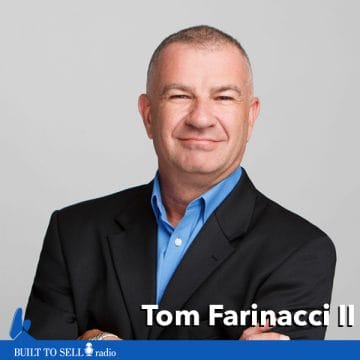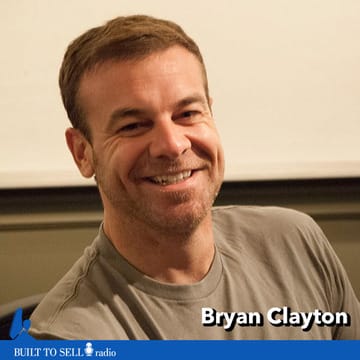
Whether you’re thinking about putting your landscaping business on the market or you’re curious about its current value, we’re here to break down the complexities. We’ve interviewed hundreds of successful founders so you can learn from their wins (and mistakes).
This article is filled with useful theory and actionable tips for increasing your landscaping business’s value – so are you ready to increase your confidence and maximize your exit for when the time comes to sell?
The 4 most common methods of valuing your landscaping business are:
Let’s delve into each method so you can decide the right one for your business.
Best for: a simple valuation
Asset-based valuation is the simplest way of valuing your landscaping business. You’ll calculate its value based on the market value of its hard assets.
This could include:
Estimate the resale value of your assets and subtract the total liabilities. Now, you’ve got your net asset value.
To note
Generally, this method produces the lowest valuation because it assumes you have not created any “good will”. Good will is an accounting term that is defined as the market value of your business, minus its hard assets. If the best you can do is sell your assets, you haven’t created any good will. That’s why we recommend using one of the other valuation techniques described below.
Best for: an insight into the value of similar landscaping businesses
Comparables is a valuation method which involves comparing your company to similar landscaping businesses that have been sold recently. Look at ones that have been sold specifically in your region to gauge the market value. You could consider factors such as revenue, customer base, location and services offered.
How does your company compare? You can find out what landscaping businesses are selling for by asking around at an industry conference like ELEVATE Conference & Expo and the NALP Leaders Forum.
While this method is a great rule of thumb, it’s not always accurate, and it can be hard to find like-for-like landscaping businesses.
Best for: valuing a small landscaping business with less than $1 million annual revenue
The most common method of valuing a small landscaping business is to use a multiple of your Seller’s Discretionary Earnings (or SDE).
The SDE method reflects the total financial advantage your company offers a full-time owner and is the best metric to use if you run a small landscaping company with less than $1 million in annual revenue. This is because smaller businesses are likely to be owner-operated. Usually, companies with higher revenue will not have an owner-operated buyer.
SDE is better for valuing smaller landscaping businesses, as these companies are likely to be owner-operated. As revenue grows, so does the probability of a business having a management team – making a multiple of EBITDA a more appropriate valuation metric (see below for more details on valuing a landscaping business on a multiple of EBITDA).
To calculate your landscaping business’s SDE, carry out the following equation:
Net Income + interest expense + depreciation expense + amortization expense + owner’s salary + taxes + discretionary expenses + non-recurring expenses = SDE
Add back non-recurring (e.g., legal fees) and discretionary expenditures (e.g., personal phone and fuel) as they don’t reflect mandatory operating costs.
The potential buyer will likely step into an owner-operator role, so you need to reincorporate the salary you’ve allocated to yourself.
Best for: valuing landscaping businesses with over $3 million annual revenue
Multiple of EBITDA is very similar to SDE but with one key difference: EBITDA assumes the buyer won’t be an owner-operator. Instead, a market-value salary is factored in.
This is likely to pull in a higher multiple, because:
Similar to SDE evaluations, a range of multiples is applied to your EBITDA. This gives you a more accurate scale of minimal and maximal purchase prices for your landscaping business.
Calculating your landscaping business’s EBITDA involves similar add-backs as SDE valuations, barring the owner’s compensation.
For example, if your annual compensation is $280,000, but a manager with an equivalent skillset could be retained for $200,000 per year, the $80,000 difference is added back. This increases your EBITDA by $80,000.
The more your business relies on you, the less appealing it may be to buyers. Aim to reduce your direct involvement in daily operations. Start by creating detailed operation manuals and ensuring your management team can run the business in your absence.
How do you prove your landscaping business can run without you?
Standard Operating Procedures (SOPs) are a great way of proving your business can run without you. This helps you standardize tasks, assign clear responsibilities and provide training for your staff to remove points of failure and ensure excellent customer care.
Transparency in financial dealings is critical. Unreported earnings can significantly reduce your business’s value. Remember, every unrecorded dollar can potentially decrease your business’s sale price.
A varied client base reduces perceived risk. Over-reliance on a few big customers can deter buyers, so be sure to focus on smaller contracts too.
The time it takes to receive payments is crucial. Extending customer credit for over 30 days may limit a buyer’s financing options. Improving your accounts receivable process can make your business more attractive.
Consider the size of your business. Small businesses may face financing challenges. Growing your business before selling could be beneficial.
Landscaping businesses with recurring revenue streams are far more appealing to buyers. Consistent income, such as regular maintenance contracts and seasonal care packages, will demonstrate predictability in revenue and make your business far more attractive.
Blend commercial contracts with residential services to broaden your market reach and stabilize revenue, especially during economic fluctuations.
Reduce the business’s reliance on you. Empower your team through training and standard operating procedures to make your business more autonomous. Remember, a self-managing business is an attractive business.
Not sure how much your business currently relies on you? Complete our self-managing checklist now
Built to Sell has helped thousands of business owners document their all-important SOPs using VidGuide, a plug-and-play tool that lets you display video instructions inside the software your team uses to run your landscaping business.
Integrate VidGuide with the landscape management software your business already uses, such as:
Avoid the painstaking process of creating written instructions by shooting a quick video of your screen to create digestible step-by-step instructions. Try VidGuide today for free; there’s no credit card required.
Building a strong online presence through customer reviews and a robust Google Business Profile attracts more customers and adds to your business’s appeal.
Streamline the process of how quickly you turn services into cash. This not only improves your financial health but also makes your business more appealing for acquisition.
Investing in up-to-date equipment can increase operational efficiency and business scalability, making it more attractive to buyers. Setting up recurring revenue streams can help fund this.
Before preparing to sell, you’ll need to know what kind of buyers would be interested in your landscaping business.
Small landscaping businesses generating less than $1 million in revenue are often attractive to individual buyers. These could be people leaving larger landscaping firms or those looking to start their own business. They typically finance purchases through bank loans or seller financing. Selling to an individual landscaper is ideal if you want someone who shares your business ethos to continue its legacy.
These are companies within or related to the landscaping industry, such as larger landscaping firms or home maintenance businesses, seeking to expand their services. They are attracted to businesses with significant earnings, often those with at least $1 million in annual revenue.
Private equity firms are increasingly interested in consolidating landscaping businesses. Their aim is to streamline operations and leverage bulk purchasing for supplies and equipment. They typically look to acquire a collection of businesses and sell them off within a 5-7 year period. These buyers are interested in businesses with strong financials and the potential for growth.

Tom Farinacci II built Houston Green Leaf up to 35 employees when he solid it to Grounds Control, a national landscaping company, for around four times EBITDA.

Nashville-based Bryan Clayton was running Peachtree, a landscaping business, when the financial crisis of 2008 hit hard. Clayton told them that the road ahead would be challenging, but he would do everything in his power not to cut staff.
You should now have a clearer understanding of the different landscaping company valuation methods, how buyers perceive risk and what you need to prepare before entering negotiations. For more valuable resources, take a look at our best-selling books, interactive courses, informative blog posts and our business podcast. Become a better business owner and maximize your exit for when the time comes to sell.